Aug 26, 2025 1:53 PM
Blindfold Test: Buster Williams
Buster Williams, who at the age of 83 has been on the scene for 65 years, had never done a Blindfold Test. The first…
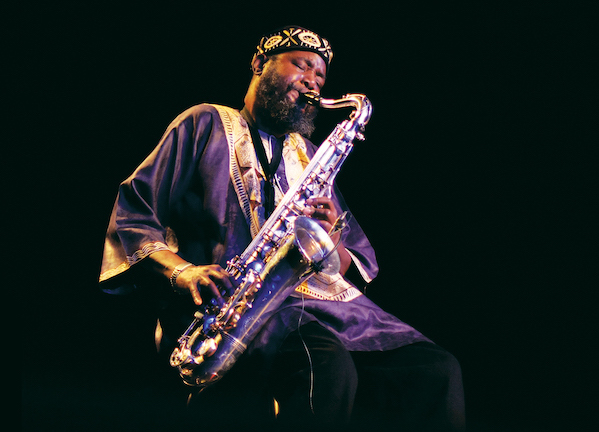
The Aum Fidelity label is set to release its latest entry in the David S. Ware archive series, Théâtre Garonne, 2008, on Nov. 15.
(Photo: John Rogers)From his time hitting New York clubs as a kid to his brief stint at Berklee and years spent leading his own bands, David S. Ware pursued a path of unfettered expression, sopping up sounds and emotions as he went along.
The late saxophonist, who would have turned 70 today, recorded Birth Of A Being, a collaborative album with Apogee, in 1977. For Ware, the disc (which was released in ’79) marked the beginning of a decade’s long search for the sublime that included brushes with fame, a major-label deal and even the occasional gig with rock acts.
“When we got into it, we really got transcendental. And it was acoustic,” bassist William Parker recently said while discussing his enduring relationship with the bandleader. “It wasn’t like a stage full of rappers and a whole production crew. It was just four people playing acoustic music, and it got to be really, really, really transcendental. But I think that David wasn’t expecting anything after a while. He just was—he went inside himself to play his music. So, that’s all he was doing it for, because he couldn’t depend on the world.”
In May 2008, Ware headed to Europe with a new ensemble, one that found Parker in the company of guitarist Joe Morris and drummer Warren Smith. It’s a substantially different band than Ware’s most prolific quintet, which held together for almost two decades and counted Parker, pianist Matthew Shipp and a rotating cast of characters on the drum throne. The upcoming Théâtre Garonne, 2008—recorded live on May 24 of that year in Toulouse, France—is the latest installment of Aum Fidelity’s archival series centered on Ware’s career and swivels on Morris’ taut improvs, always falling back into the bandleader’s familiar and comforting themes.
The disc also presages some material that would be issued on 2009’s Shakti. “Crossing Samsara,” the lead-off track on both the live disc and the studio work, comes off as more aggressive and confident on Garonne, but leads to the same sort of urgent proclamations by the bandleader. It’s a balance, though.
Ware reels back on “Durga” to unloose fury, and on the following track, “Reflection,” the saxophonist’s keen and contrasting sense of melody makes the live set a distillation of his work. The Garonne album documents Ware’s last tour to feature any prewritten music, according to Aum Fidelity founder Steven Joerg, and likely is the only recording with this lineup to be issued in the archival series.
“It’s not limitless,” Joerg began, discussing attempts to feature as many disparate facets of the bandleader’s sound as possible across the releases. “[T]here’s a lot of live stuff. … I’m not going to put out more than the amount of records that I produced with him when he was still with us. But that’s kind of a lot—like 10 or 12.”
The well of recorded music—and Joerg’s desire to release it—might have its limits, but Ware’s voice and technical facility did not. In a discography that includes 1970s work with drummer Andrew Cyrille, duets with Shipp and scads of solo, trio and quartet recordings, Ware pivots from a reassuring, velvety tone to unrelenting bluster, expressing the entirety of his singular sonic personality.
“I really never listen to the recordings until way after they’re out,” said Parker, who at the time of this interview hadn’t yet heard Garonne. “And every time I’ve listened to them, it’s been surprising how wonderful they sound. It’s just the way I am. ... We did it and it was great. And I’m ready to catch the next star in the universe. And I just mean the next scrap of creativity, you know?”
Maybe Ware—who died in 2012 following years of peritoneal dialysis—felt the same thing, taking a break from regular recording and touring for most of the 1980s. It was a time for shedding at his home in New Jersey, where he lived with Setsuko S. Ware, his wife.
“He wanted to focus his energies on his music and his concepts, and have it be revealed when it was ready to be revealed,” Joerg said about the time Ware spent away from the bandstand, driving a taxi. “And when it was time to do it, he was very methodical about it. ... This is following the decade of his playing with Cecil [Taylor] … . He still continued to play and he would come out and do occasional gigs, you know, with some heavyweight characters.”
A period of vitality followed that break from regular gigging, with the saxophonist’s quartet embarking on a 17-year run. But by the late 1990s, Ware’s kidneys had begun to fail. And for the remainder of his life, even after a 2009 transplant, health issues would dog the bandleader. Despite the obstacles, Ware released a pair of discs on Columbia—1998’s Go See The World and 2000’s Surrendered—with the assistance of Branford Marsalis, who for several years served as creative consultant for the label’s jazz arm.
“I just loved his sound. I don’t have a political affiliation with music, just musical affiliations. My hearing doesn’t reside in a camp or a style,” Marsalis recently said over the phone while on tour. “I like music where there’s a certified understanding of melody, and with David that was one of those things that I got. He has a melodic understanding, even in an avant-garde sense, in the spirit of Cecil Taylor and Horace Tapscott. It’s almost like listening to Stravinsky or Hindemith.”
Touchstones like Albert Ayler, John Coltrane and Sonny Rollins generally get tossed around amid discussion of Ware’s work. But Parker pointed to Coleman Hawkins, too. There’s a richness of tone that the pair shared, and that occasional vibrato, dispatched more frequently to underline emotion than to sermonize skill.
“He was playing the sound of nature,” Parker said about his musical foil. “He was playing the sound of the root of the tree to the unexplored universe. It’s like the wind blowing through a saxophone. It’s like climbing a mountain. It’s like a carpet of sound that takes you to an unknown place.” DB
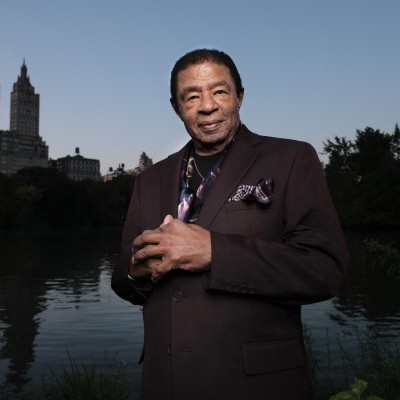
“What I got from Percy was the dignity of playing the bass,” Buster Williams said of Percy Heath.
Aug 26, 2025 1:53 PM
Buster Williams, who at the age of 83 has been on the scene for 65 years, had never done a Blindfold Test. The first…
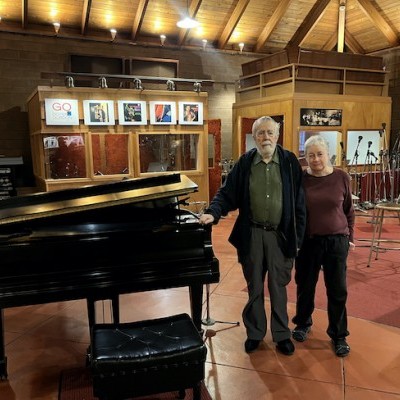
Don and Maureen Sickler serve as the keepers of engineer Rudy Van Gelder’s flame at Van Gelder Studio, perhaps the most famous recording studio in jazz history.
Sep 3, 2025 12:02 PM
On the last Sunday of 2024, in the control room of Van Gelder Studio, Don and Maureen Sickler, co-owners since Rudy Van…
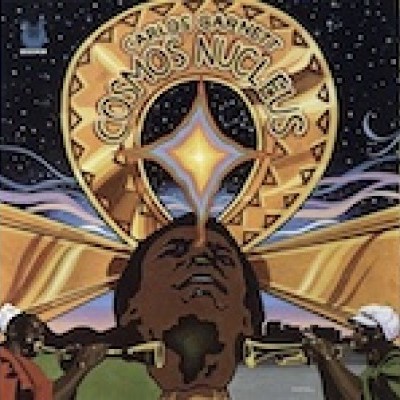
The Free Slave, Cosmos Nucleus and Sunset To Dawn: three classic Muse albums being reissued this fall by Timer Traveler Recordings.
Aug 26, 2025 1:32 PM
Record producer and “Jazz Detective” Zev Feldman has launched his next endeavor, the archival label Time Traveler…
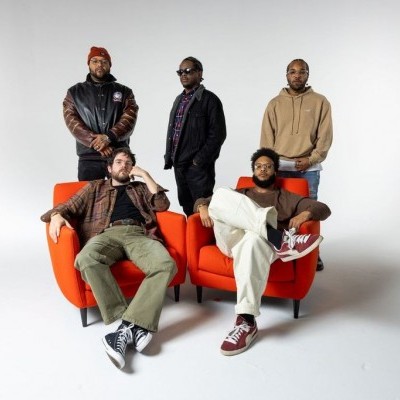
Butcher Brown, clockwise from top left: Marcus Tenney, DJ Harrison, Morgan Burrs, Corey Fonville and Andrew Randazzo. (Keyboardist Harrison couldn’t make the gig, so special guest Jacob Mann sat in with the band at the Reno Jazz Festival.)
Aug 19, 2025 12:41 PM
The band known as Butcher Brown has enjoyed the last half-decade basking in the glow from the twin engines of critical…
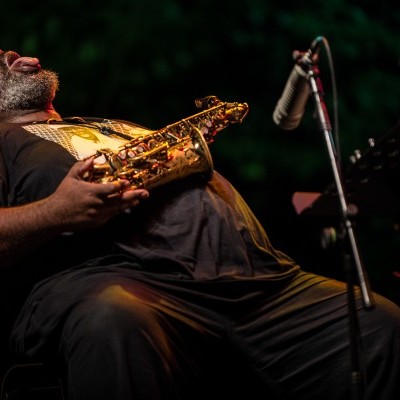
This year’s Jazz em Agosto set by the Darius Jones Trio captured the titular alto saxophonist at his most ferocious.
Aug 26, 2025 1:31 PM
The organizers of Lisbon, Portugal’s Jazz em Agosto Festival assume its audience is thoughtful and independent. Over…